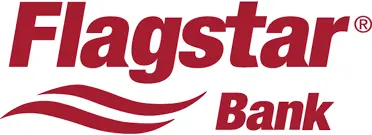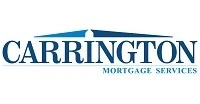FHA Loan Calculator: Estimate Your FHA Mortgage Payment
LendingTree’s calculator helps you determine your monthly payment on an FHA loan
FHA loans are government-backed mortgages with easier qualification requirements than conventional loans. The calculator below can help you estimate the monthly payments on an FHA loan, including property taxes and homeowners insurance.
Our FHA loan calculator provides a quick and easy way to find out your monthly FHA mortgage payment. Just plug in the following seven pieces of information:
- Property location. FHA loan limits vary by county. To get your most accurate estimate, enter the ZIP code for the neighborhood you’d like to buy a home in.
- Home price. If you’re under contract on a specific house, enter the price here. If you haven’t settled on a home yet, you can use a rough estimate.
- Down payment. The calculator automatically inputs a 3.5% down payment, which is the minimum required for an FHA loan. You can change the dollar amount or percentage field if you plan to put down more.
- Loan term. Choose a 30-year fixed-rate mortgage for the lowest payment, or a 15-year fixed-rate mortgage to pay off your mortgage faster.
- Mortgage rate. Check out average FHA loan rates, or if you’ve already shopped around, enter the best rate you were offered. Keep in mind: Rates change daily, so the rate you check today may go up or down tomorrow, leading to a jump or drop in your monthly payment.
- Property taxes. The calculator estimates property taxes as 1.20% of the home’s value, but your actual rate could be higher or lower depending on where you live. For a more precise payment estimate, check your local tax assessor’s website to find the exact rate in your area.
- Home insurance. Get a homeowners insurance estimate for a ballpark on your annual premium. The calculator automatically provides an $800 estimate per year.
Read more about how to choose between a 15- vs. 30-year mortgage.
What costs make up an FHA mortgage payment?
The “monthly payment breakdown” itemizes what goes into your total FHA loan payment — also known as a PITI (principal, interest, taxes and insurance) payment. Here’s a detailed breakdown of each cost:
Principal and interest
This part of your monthly payment varies based on your FHA base loan amount, interest rate and loan term. For a fixed-rate loan, your total payment amount doesn’t ever change, but each month, you’ll pay more principal and less interest until you pay off the balance. This process is known as amortization.
Property taxes
FHA loans require you to pay a portion of your property taxes as part of your monthly payment. The lender divides your annual tax bill into 12 monthly installments and collects them in an escrow account until they’re due.
Home insurance
Homeowners insurance pays for losses from unexpected damage to your home from a fire, theft or other covered event. Like your property taxes, the premium is divided by 12 and becomes part of your monthly mortgage payment. The lender pays the annual premium through your escrow account.
Monthly FHA mortgage insurance premium (MIP)
The annual mortgage insurance premium (MIP) is one of two types of FHA mortgage insurance you’re required to pay. The fee ranges from 0.15% to 0.75% of your loan amount, depending on the loan term, loan amount and down payment. MIP is charged annually, divided by 12 and added to your monthly payment.
- Make a bigger down payment. The annual MIP premium is cheaper with a larger down payment, since you’re borrowing less.
- Boost your credit scores. FHA lenders offer rates based on your credit score, and a higher score gets you a lower rate and mortgage payment. In the months before you apply for a loan, pay your bills on time, keep your credit card balances low and avoid opening multiple new credit accounts at once.
- Choose a streamline refinance if rates drop. The FHA streamline refinance allows you to lower your FHA loan rate without a home appraisal or proof of income. If rates fall, consider refinancing your mortgage to shrink your monthly payment.
This year’s best FHA mortgage lenders
| Lender | User ratings | LendingTree rating | Min. credit score (FHA loans) | Min. down payment (FHA loans) | Rate spread
Rate spread is the difference between the average prime offer rate (APOR) — the lowest APR a bank is likely to offer any private customer — and the average annual percentage rate (APR) the lender offered to mortgage customers in 2023. The higher the number, the more expensive the loan.
| Avg. loan costs
Average total loan costs include origination fees and are based on 2023 data from the Federal Financial Institutions Examination Council (FFIEC).
|
|---|---|---|---|---|---|---|
 |
(625)
Ratings and reviews are from real consumers who have used the lending partner’s services.
|  Read review Best FHA loan lender overall | 580 | 3.5% | 0.97% | $8,512 |
 |
(645)
Ratings and reviews are from real consumers who have used the lending partner’s services.
|  Read review Best FHA lender for online experience | 580 | 3.5% | 1.11% | $8,073 |
 |
(17399)
Ratings and reviews are from real consumers who have used the lending partner’s services.
|  Read review Best FHA lender for online mortgage rates | 600 | 3.5% | 0.40% | $11,690 |
 |
(55709)
Ratings and reviews are from real consumers who have used the lending partner’s services.
|  Read review Best FHA lender for 203(k) renovation loans | 500 | 3.5% | 0.49% | $8,170 |
 |
(89)
Ratings and reviews are from real consumers who have used the lending partner’s services.
|  Read review Best FHA lender for bad credit | 500 | 3.5% | 1.46% | $9,079 |
Learn more about how we chose our best FHA lenders.
How to get an FHA loan
Follow the five steps below to get an FHA loan:
- Shop with at least three lenders. Gather loan estimates from at least three lenders and compare costs. Ask the lenders if they are FHA-approved — not all lenders are. You can also find a list of local FHA-approved lenders on the HUD website.
- Fill out an FHA loan application. You’ll need basic income, employment and asset information, as well as a rough idea of your monthly debt payments.
- Check your credit scores. The lender will pull a credit report to confirm you meet the minimum score requirements.
- Provide financial documents. A current month’s pay stubs, two years’ worth of W-2s and two months’ worth of bank statements should get you off to a good start.
- Pay for a home appraisal. FHA guidelines require an FHA appraisal to confirm the home’s value and that the property meets the FHA’s property standards.
Explore current FHA interest rates
| Loan product | Interest rate | APR |
|---|---|---|
| 30-year fixed rate FHA mortgage | 5.64% | 6.29% |
| 30-year fixed rate FHA refinance | 6.19% | 6.87% |
Average rates disclaimer
Frequently asked questions
If your credit score is below 620 or you have a high debt-to-income (DTI) ratio, an FHA loan may be your best option. Conventional loan requirements set a minimum 620 credit score, which is significantly higher than the 500 minimum score required for FHA loans.
The 2025 limit is $524,225 for a single-family home in most parts of the country but may be as high as $1,209,750 for single-family homes in higher-priced areas.
The mortgage process for an FHA loan is similar to any other type of mortgage loan. You’ll fill out an application and provide financial documents like pay stubs, a W-2 and bank statements. Once you find a home, the lender orders an FHA appraisal. If the appraisal supports your sales price, the lender issues a closing disclosure three business days before your closing date. Once you review the figures, you can sign your final paperwork, get your loan funds and take ownership of your new home.
Yes, but you’ll still have to pay both types of mortgage insurance. However, the MIP will automatically drop off after 11 years.
You can ask for a gift or apply for closing cost assistance if you’re short on funds. FHA guidelines allow the home seller to pay up to 6% of your loan amount toward closing costs. You can also ask the lender for a no-closing-cost loan — the lender pays the costs on your behalf and increases your interest rate instead.
No. Anyone who meets FHA loan requirements can qualify for an FHA loan through an FHA-approved lender.
The minimum down payment is 3.5% for an FHA mortgage with a 580 credit score.
No, the FHA doesn’t set income restrictions. However, if you’re applying for down payment assistance (DPA), income limits may apply.